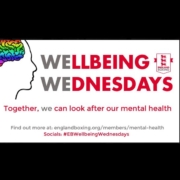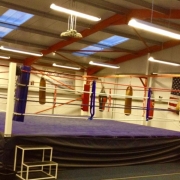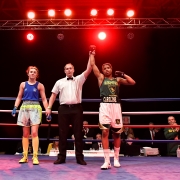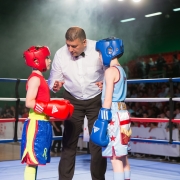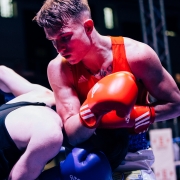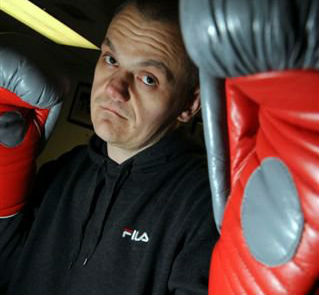
#FightingBack: Police officer Craig’s battle with Post Traumatic Stress Disorder
February 25, 2019 | by Matt Halfpenny
In the third of England Boxing’s features as part of the #FightingBack mental health campaign, police officer Craig Turner explains how we has hit by Post Traumatic Stress Disorder after a fall.
“I didn’t expect that when I left for work one Sunday in 2009, that day would change my life completely.
I was a police officer around the city centre of Bristol and attended a report of kids inside an abandoned pub building. I went upstairs to the first floor and, having taken four or five steps, I fell through the damp floorboards some 25 feet to the bar below. I remember looking up at the hole in the ceiling thinking, ‘What the hell just happened?!’
I noticed that my heart rate didn’t quicken and I didn’t seem shocked at all. I saw that my wrist was obviously broken and I was sore here and there, but other than that there were no issues. My colleague and I just jumped into the car and went to casualty and, an hour and a plaster cast later, I was on my way home as if nothing had happened.
A week went by and I noticed my neck was still sore. I went back to casualty and was amazed to see the staff running around fetching a collar and telling me not to move. Turns out I had broken my neck! A short time afterwards I underwent surgery to repair the injury and thankfully it was successful and healed well.
Physically I was fine, but it was when I returned to duty that I discovered I had sustained another injury from the fall that couldn’t be fixed as quickly.
I started to dream that I was falling and not landing and would wake up suddenly in a sweat and panic and I couldn’t go back to sleep. This went on for a while, to the point that I didn’t want to sleep because the dreams seemed so real. I was on shifts at the time and this played havoc with my sleeping pattern and my police colleagues began to notice that I was tired all the time.
I was most un-amused to find an appointment had been made for me with the force occupational health department, which I attended with the intention of being as sarcastic and dismissive as possible. The force medical officer said, ‘It sounds to me like you may have PTSD Craig.’ All I heard at that stage was ‘STD’ so I asked her to explain how she came to that conclusion! ‘No,’ she said, ‘Post Traumatic Stress Disorder.’
With a sense of dread I could see in my mind the ‘pull up a bean bag, light a joss stick, listen to whale music’ waste of time therapy sessions that lay ahead. At least that’s how I thought at the time.
‘I’d like you to see a councillor Craig,’ she said.
‘Thanks but no thanks I replied, I’m not a nutter!’
‘I agree,’ she said, ‘you have experienced a near death event and the shock you should have encountered at the time is playing out now, and it won’t get better on its own.’
My response was I expect typical of many self-reliant blokes: ‘Stupid, hippy, tree-hugging, grow your own sandals rubbish.’
I went to my first appointment with a closed-mind. I met the therapist and I found him to be a normal guy who asked me how my injuries were healing. An hour and a half conversation took place and, without any witchcraft or weirdness, I was willing to accept that my accident had left its mark on my mind in the form of PTSD.
I saw the therapist for a while and the dreams happened less and less, until they stopped altogether.
This is the problem for hundreds of people: ego, and worry of what people will think. It leads to an ‘I can handle this on my own’ mentality which becomes more stubborn as the problem is left untreated. I know of people who have experienced similar traumatic life events that would mess up even the strongest individual. They have gone on to self-medicate with drink and drugs which has in turn led to additional problems like addiction. All for the want of saying to someone, ‘This is really getting to me.’
I am proud of my service, I am proud that I took the fall instead of a child, and I am pleased and proud to admit that my perception of mental health has changed as a result. Now, I hope that by sharing my experience through the boxing community it can help others to feel able to admit that they need help to get through struggles that they may be going through.
We all do sometimes, no matter how big and strong we might be.”

